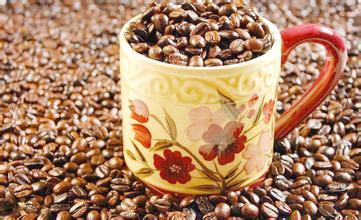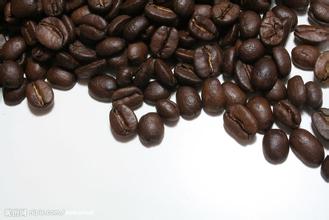Introduction to the flavor description and processing method of Brazilian yellow bourbon coffee beans
Http://www.gafei.com/bopangkafei/2016102682842.html
Brazil is vividly compared to the "giant" and "monarch" of the coffee world. There are about 3.97 billion coffee trees there, and small farmers now grow 75% of Brazil's total coffee production. The number of coffee producers in Brazil is twice or even three times that of Colombia, the second largest coffee producer in the world.
Unlike in the past, Brazil's economy is now less dependent on coffee, which accounts for only 8% to 10% of GDP. Before World War II, Brazil accounted for 50% or more of the world's coffee production, and now it is close to 30%. But the country's impact on the world's coffee, especially on coffee prices, is significant. For example, two frost disasters in 1994 caused a sharp rise in global coffee prices.
Since the introduction of coffee trees from French Guiana (Guyana) in 1720, coffee production has gradually become a science. Before 1990, the Brazilian government carried out strict monitoring of the coffee industry, with both strict intervention and price protection measures, and the state has been implementing minimum price protection measures for farmers, resulting in coffee overproduction. Before World War II, the surplus stock reached 78 million bags, which had to be burned by fire or thrown into the water to destroy.
At present, there are 2 million hectares of land in Brazil for growing coffee, and the largest is Arabica. These beans will eventually be sent to large bakers in various countries, that is, the well-known Santos (named after the port of export santos, not the producing area). Because of the coffee competition after 2000, the quality of coffee beans produced in the high-altitude areas of the south was appreciated, mainly by the farms around the Minas platform. Coffee quality is also the largest among Brazilian beans, such as Syracuse in the west of Minas and Matas in the east, Bashiya in the north or small farms in the south. Minas has almost become synonymous with Brazilian boutique coffee. In recent years, the coffee competition is accurate to be separated by treatment (water treatment / half water washing / half sun / sun exposure), developing a variety of flavors, mouthfeel and aftertaste.
Flavor features: balanced sweet, creamy smooth, orange, apricot and other fruit flavor, chocolate, caramel flavor coffee was first introduced to Brazil in the early 18th century. In 1727, the Brazilian government sent a personable army officer to secretly bring coffee seeds from French Gaiana to Brazil on the grounds of mediating border disputes. it is said that the governor's wife of French Gaiana was fascinated by this officer at that time. So he secretly brought coffee tree seeds to him at the farewell dinner. At present, 2 million hectares of land in Brazil is used to grow coffee, with a maximum of more than 70% being Arabica. These beans will eventually be sent to large roasters in various countries, that is, Santos (in the name of the port of export santos, not the producing area). Facts have proved that Brazil is also capable of producing gourmet coffee and small batches of coffee. The local boutique coffee can not only be provided by small-scale coffee farmers. The main coffee producing areas in Brazil are Sulde Minas South Minas, Matas de Minas Minas Southeast Mountain Forest, Cerrado Hilado, Chapadas de Minas Minas Mausoleum, Mogiana Mojiana, Paran á Parana and Bahia Bachia. There are both traditional varieties and variants, such as Bourbon, Mondo Novo Mondonovo, Icat ú Ikatu, Kaduai, Iapar, cultivatedcard Taiyi.

Important Notice :
前街咖啡 FrontStreet Coffee has moved to new addredd:
FrontStreet Coffee Address: 315,Donghua East Road,GuangZhou
Tel:020 38364473
- Prev

Introduction to the taste of the quality producing area of Sidamoto Lion King Coffee Bean Flavor description
Sidamomo Lion King Coffee Bean Flavor description method Coffee is the most important export cash crop and the main source of foreign exchange income in Ethiopia. Ethiopia's coffee exports account for about 3% of the world market, making it the eighth largest coffee exporter in the world. Coffee exports increased steadily from 58000 tons in 1990 to 110 tons in 1995-1996.
- Next

Introduction to the varieties of Sumatran Coffee by describing the Flavor of the region in the Geographical planting Environment
The geographical planting environment and regional flavor description of Sumatran coffee varieties introduce that Mantenin coffee beans have large particles and hard beans, and are prone to defects in the process of planting, and they are usually subject to strict manual selection after harvest. If the control process is not strict enough, it is easy to cause the quality of the good and the bad to be mixed, and the different degree of baking will also directly affect the taste, so it has become controversial.
Related
- Detailed explanation of Jadeite planting Land in Panamanian Jadeite Manor introduction to the grading system of Jadeite competitive bidding, Red bid, Green bid and Rose Summer
- Story of Coffee planting in Brenka region of Costa Rica Stonehenge Manor anaerobic heavy honey treatment of flavor mouth
- What's on the barrel of Blue Mountain Coffee beans?
- Can American coffee also pull flowers? How to use hot American style to pull out a good-looking pattern?
- Can you make a cold extract with coffee beans? What is the right proportion for cold-extracted coffee formula?
- Indonesian PWN Gold Mandrine Coffee Origin Features Flavor How to Chong? Mandolin coffee is American.
- A brief introduction to the flavor characteristics of Brazilian yellow bourbon coffee beans
- What is the effect of different water quality on the flavor of cold-extracted coffee? What kind of water is best for brewing coffee?
- Why do you think of Rose Summer whenever you mention Panamanian coffee?
- Introduction to the characteristics of authentic blue mountain coffee bean producing areas? What is the CIB Coffee Authority in Jamaica?

